To us, a “special concern” is anything that a parent would like us to know about their child before their child arrives here at High Trails. We see over 8,000 students every school year, so we receive a wide range of concerns: chronic illnesses, dietary restrictions, behavioral problems, severe allergies, emotional issues. If you can name it, we most likely have some experience with it.
What Forms Do I Need To Fill Out?
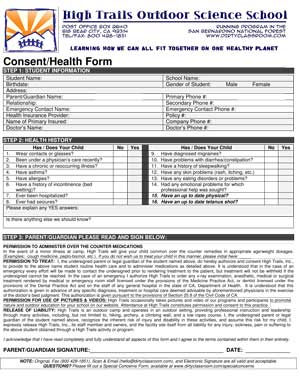 The Health/Consent Form is required for every student, and the Medication Form is necessary for every student with any medication. The teachers give us these forms when the students arrive. For special concerns that we should know about beforehand, almost all communication starts with the Special Concerns Form on our website.
The Health/Consent Form is required for every student, and the Medication Form is necessary for every student with any medication. The teachers give us these forms when the students arrive. For special concerns that we should know about beforehand, almost all communication starts with the Special Concerns Form on our website.
This form allows parents to tell us a little more about their child’s specific needs. We prefer email correspondence over a phone call because it allows us some time to think and discuss each specific situation, and we do our best to answer every submitted form by email or phone within 24 business hours. The Special Concerns Form is very important: if we don’t know about a student’s needs before the student arrives, it’s much more difficult for us to accommodate them.
How Do You Prepare For Special Concerns?
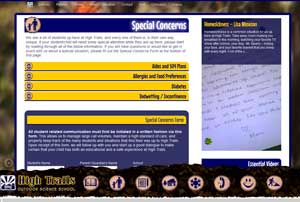 The morning before students arrive, we review all special concerns with instructors. After the students arrive and we receive their Health/Consent Forms, we compile all pertinent medical information into one confidential document, the Be Aware List. Every staff member receives this document, and it is their guide for the week to anything parents have told us about their children.
The morning before students arrive, we review all special concerns with instructors. After the students arrive and we receive their Health/Consent Forms, we compile all pertinent medical information into one confidential document, the Be Aware List. Every staff member receives this document, and it is their guide for the week to anything parents have told us about their children.
We also prepare by educating all instructors about conditions their students may have. All of our instructors, not just our medical team, are certified in CPR and First Aid and have received further training on ADD, allergic reactions and anaphylaxis, asthma, autism, diabetes, epilepsy, homesickness, and bedwetting, just to name a few.
What Are Some Common Special Concerns You Encounter?
Keep in mind that these are short synopses. We do plenty more than is summarized here to keep our students safe and healthy.
Asthma: According to the CDC, 9.5% of children in the US have asthma, which means that we at High Trails will receive, on average, 15-20 students with asthma and inhalers every week. Our outdoor setting, with students hiking miles away from the medical office, dictates a different protocol than that of a typical school. Our instructors carry their students’ emergency medications, and we have a documented method of keeping track of them. This means that when a student needs their inhaler, it is right there for them to use.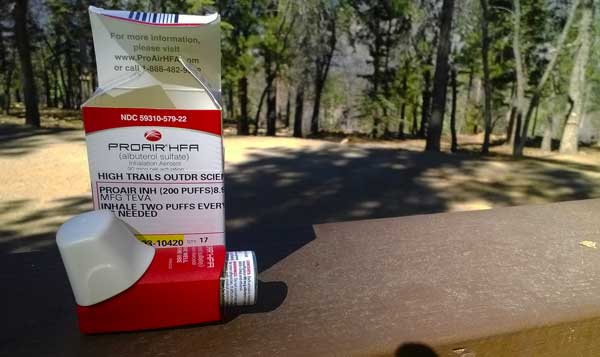
Incontinence/Bedwetting: Parents generally let us know about bedwetting on the Health/Consent Form or, if it’s more severe and requires extra knowledge or attention, the Special Concerns Form. For these students, we focus on prevention, such as having them sleep on a bottom bunk, waking them up during the night to go to the bathroom, and limiting liquid intake after dinner. In case a student does wet the bed, the cabin instructor, the adult who is sleeping in the cabin with the students, grabs a spare sleeping bag, isolates the wet sleeping bag and clothes, and washes the clothes the next morning. Everything is carried out with the utmost of discretion.
- Our extra clothes bag, ready to respond.
Peanut or Other Food Allergies: According to foodallergy.org, about 8% of children, or 1 in 13, have a food allergy. Most of these allergies are not severe or life-threatening, but we still receive numerous EpiPens every week for food allergies, the most common being peanuts. Just like inhalers, EpiPens are carried by instructors so that they are always available.We do quite a lot to make sure that allergic students are never exposed to their allergen. We talk with the student upon arrival about what foods to avoid, and, for nut 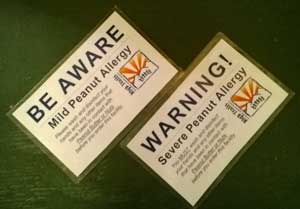 allergies, we have strict, detailed protocols for mealtimes and sandwich making to avoid cross-contamination. We cannot accommodate an entirely peanut free site, the exception being a “Nut Free” 504 Plan for airborne allergies. If a student requires a special diet because of their allergies, see the next section!
allergies, we have strict, detailed protocols for mealtimes and sandwich making to avoid cross-contamination. We cannot accommodate an entirely peanut free site, the exception being a “Nut Free” 504 Plan for airborne allergies. If a student requires a special diet because of their allergies, see the next section!
 Special Diets: Our cooks have the Herculean responsibility of producing healthful, tasty food every week for over 200 people with different needs and likes. The only special diet they provide a meal plan for is vegetarian, and that’s where we draw the line. There are too many different diets and personal preferences out there for our kitchen to plan and prepare a wholesome, nutritious meal plan for each.
Special Diets: Our cooks have the Herculean responsibility of producing healthful, tasty food every week for over 200 people with different needs and likes. The only special diet they provide a meal plan for is vegetarian, and that’s where we draw the line. There are too many different diets and personal preferences out there for our kitchen to plan and prepare a wholesome, nutritious meal plan for each.
However, with prior planning and communication, we can accommodate any diet by having parents send up food for their child. We are happy to substitute simple, one-step items for any student, regardless of the reason. Even though the foods we serve are very common (pizza, pasta, chicken nuggets, etc), some students are just really picky. Just last week I prepared a bowl of dry cereal for a student who refused to eat anything else, including pizza, a special vegetarian option, an extensive salad bar, or a PB&J sandwich! This kind of thing happens often, and it takes valuable time away from students who need help with genuine issues. Parents can help us and their children avoid situations like these by checking out our menu and having their children get to know any foods that may be unfamiliar before they come to High Trails.
Diabetes: We typically have one or two diabetic students every week here at High Trails. Because treatment depends on a number of factors, we defer those decisions to the student’s doctor and parents. They fill out a Diabetic Management Plan, which tells us the student’s normal blood sugar range, how we can keep it in the normal range, and what to do in case of low or high blood sugar. This form is due one week before the student arrives. While the student is here, we count carbohydrates and weigh serving sizes, and we monitor their blood sugar throughout the day according to the Management Plan. The instructor carries snacks, a test kit, and an emergency kit at all times, and the medic is available 24 hours a day in case of emergency.The medic, while competent in all manners of caring for diabetic students, is limited to assisting with injections. Therefore, we ask that all diabetic students be able to inject themselves (or can maintain their pump).
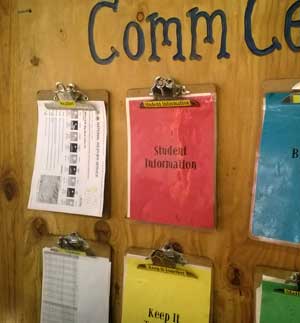 Behavior: According to the CDC, 8.4% of children ages 4-17 have been diagnosed with ADHD. While many of these students thrive in the active school setting that we provide for them, some students, ADHD or not, have difficulty following the rules. We encourage the parents or teachers who worry about their students’ behavior to watch the videos on our website, talk about common situations their students may encounter up here, and review our rules and three strikes policy.
Behavior: According to the CDC, 8.4% of children ages 4-17 have been diagnosed with ADHD. While many of these students thrive in the active school setting that we provide for them, some students, ADHD or not, have difficulty following the rules. We encourage the parents or teachers who worry about their students’ behavior to watch the videos on our website, talk about common situations their students may encounter up here, and review our rules and three strikes policy.
Special Medical Conditions: Some students, typically those who are autistic or severely OCD, have more trouble than others with adjusting to this new world they are placed in. The school district oftentimes provides these students with an aide that accompanies them throughout their stay. Each student is unique, and we do our best to work with the school and the student to figure out a plan that works for everybody.
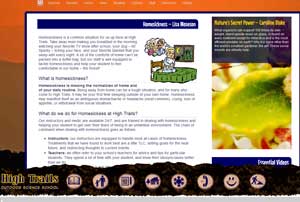 Homesickness and Anxiety: Even though we see many students with extensive special needs, homesick students frequently need the most attention of all. It’s easy to understand why: many of the students we see have never spent even one night away from their parents, so leaving the comfort of home for three or four nights in the mountains can be a huge challenge. Still, we believe that being able to spend time away from home is a big step in growing up, and with the parents’ support, we will work with a student for as long as it takes. We have a number of strategies for dealing with homesick students, and those who are able to make it to the end of the week are almost always proud of themselves for succeeding. Severely homesick students do go home, like a particularly memorable student who sobbed uncontrollably for hours and refused to eat, but those situations are rare.
Homesickness and Anxiety: Even though we see many students with extensive special needs, homesick students frequently need the most attention of all. It’s easy to understand why: many of the students we see have never spent even one night away from their parents, so leaving the comfort of home for three or four nights in the mountains can be a huge challenge. Still, we believe that being able to spend time away from home is a big step in growing up, and with the parents’ support, we will work with a student for as long as it takes. We have a number of strategies for dealing with homesick students, and those who are able to make it to the end of the week are almost always proud of themselves for succeeding. Severely homesick students do go home, like a particularly memorable student who sobbed uncontrollably for hours and refused to eat, but those situations are rare.
Honestly, it breaks my heart to see otherwise healthy and happy students missing home so badly that it ruins their experience (and diminishes other students’ experiences) here at High Trails. The good news is that, with some planning, homesickness can be minimized. Parents can talk to their child about being away from home, have their child watch the videos on our website, send positive letters that talk about how proud they are for taking on this challenge (FYI the phrase “I miss you” encourages homesickness), and, most importantly, expose their children to new environments. All of these things can help students have a good time at High Trails and learn that it’s okay to be away from home.
While we do our best to accommodate all students’ needs, sometimes students must simply be flexible in new places and situations. For example, sharing a bathroom, sleeping in a cabin with other students, and being away from parents are aspects of High Trails that we simply cannot change. We view these difficulties as an opportunity for growth: with preparation and support from parents and teachers, a week at High Trails can help students become more adaptable to new places.
What Does This Mean For My Child and I?
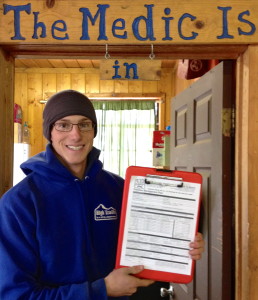 We see and take care of more than 8,000 students every year, so we have quite a lot of experience with all kinds of special concerns. If your student has a specific need that we should know about beforehand, such as a special diet, autism, diabetes, a severe allergy, or a unique problem that requires extra accommodation, fill out the Special Concerns Form! We can’t fully prepare for concerns that we don’t know about ahead of time.
We see and take care of more than 8,000 students every year, so we have quite a lot of experience with all kinds of special concerns. If your student has a specific need that we should know about beforehand, such as a special diet, autism, diabetes, a severe allergy, or a unique problem that requires extra accommodation, fill out the Special Concerns Form! We can’t fully prepare for concerns that we don’t know about ahead of time.
At High Trails Outdoor Science School, we literally force our instructors to write about elementary outdoor education, teaching outside, learning outside, our dirty classroom (the forest…gosh), environmental science, outdoor science, and all other tree hugging student and kid loving things that keep us engaged, passionate, driven, loving our job, digging our life, and spreading the word to anyone whose attention we can hold for long enough to actually make it through reading this entire sentence. Whew…. www.dirtyclassroom.com

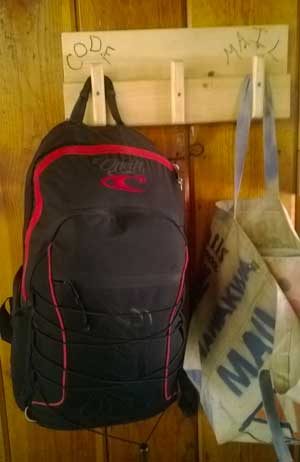
Comments are closed.